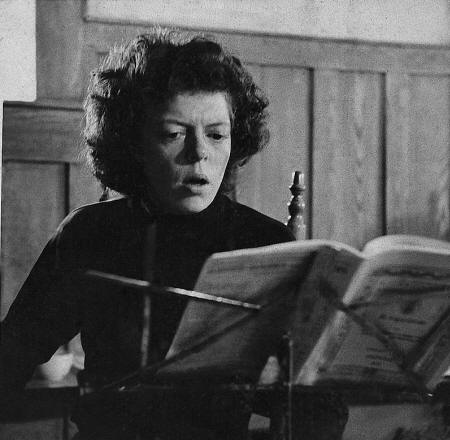

Partner Vera Lachmann
Queer Places:
Camp Catawba, Old Camp Catawba Rd, Blowing Rock, NC 28605
 Lorraine "Tui" St. George Tucker (November 25, 1924 – April 21, 2004) was an American microtonal composer and recorder player and instrument developer.
Lorraine "Tui" St. George Tucker (November 25, 1924 – April 21, 2004) was an American microtonal composer and recorder player and instrument developer.
Tucker was born in Fullerton, Orange County, California, the daughter of an English father and a mother from New Zealand. She attended Eagle Rock High School in northeast Los Angeles, California, graduating in 1941. She then attended Occidental College in Los Angeles from 1941 to 1944. She is named for the tui, a bird native to New Zealand, where her mother was born.
She moved to New York City in 1946, working as a composer, conductor, and recorder player, and spending most of her professional life in New York City. Her compositions often feature microtonality and are strongly influenced by early music. She developed special recorders with extra holes, as well as special fingerings for the recorder to allow for the playing of quarter tones. Her Indian Summer: Three Microtonal Antiphons on Psalm Texts for two baritones and chamber ensemble combines the use of quarter tones with a Latin text. From 1947 to 1970 she spent her summers as the music director of Camp Catawba for Boys, located near the Blue Ridge Parkway on the Boone side of Blowing Rock, North Carolina.[1] Pianist Grete Sultan also worked there during several summers.
In 1950, Vera Lachmann met the woman who would become her lifelong partner: Tui St. George Tucker, to whom Lachmann dedicated her 1969 book of poetry, Golden Tanzt das Licht im Glas [Golden Dances the Light in the Glass].
In 1985, Tui inherited the camp grounds from Vera Lachmann, who had founded the camp in 1944, and lived there year-round from then until her death on April 21, 2004.
My published books: